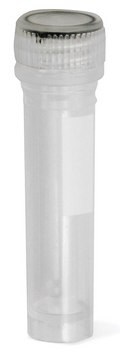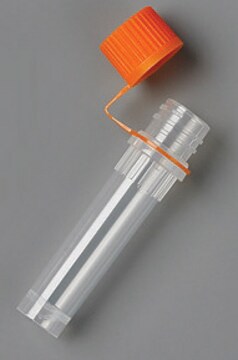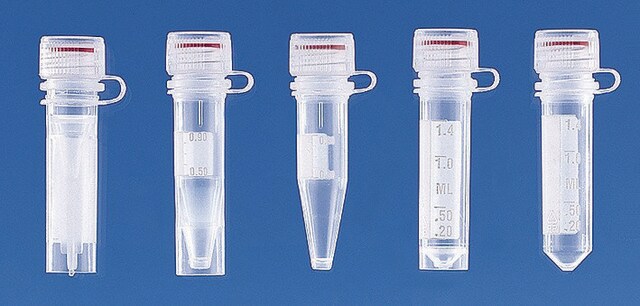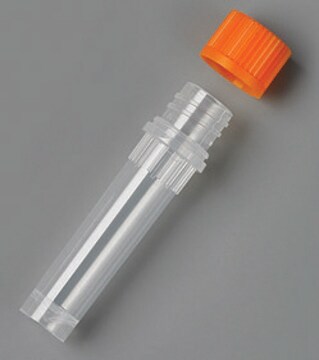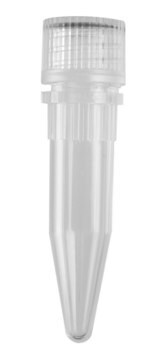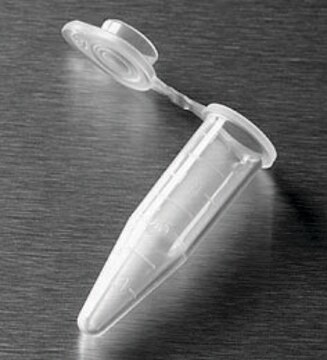CLS430909
Corning® microcentrifuge tubes with screw cap
1.5 mL microcentrifuge tube, polypropylene, w/ attached screw cap, w/ 0-ring, sterile, natural, 500/cs
Synonym(s):
centrifuge tubes, micrcentrifuge tubes, microfuge tubes, screw cap microcentrifuge tubes
About This Item
Recommended Products
material
conical bottom tube
natural polypropylene tube
screw top cap
description
O-ring (black silicone, rubber O-ring in cap)
sterility
sterile
feature
self-standing: no conical bottom
packaging
pack of 50
case of 500
manufacturer/tradename
Corning 430909
parameter
20000 × g max. RCF
cap diam.
12.7 mm
capacity
1.5 mL
tube O.D.
10.7 mm
color
natural
fitting
cap (screw cap)
Looking for similar products? Visit Product Comparison Guide
General description
- 1.5 mL polypropylene microcentrifuge tubes feature screw caps that provide a tight secure seal
- Attached cap with silicone O-ring
- Withstands a maximum RCF of 20,000xg
- Sterile
- Maximum RCF is 20,000
- No marking spot
Legal Information
Certificates of Analysis (COA)
Search for Certificates of Analysis (COA) by entering the products Lot/Batch Number. Lot and Batch Numbers can be found on a product’s label following the words ‘Lot’ or ‘Batch’.
Already Own This Product?
Find documentation for the products that you have recently purchased in the Document Library.
Customers Also Viewed
Protocols
Reverse transcription (RT) is the process of converting RNA to cDNA using a reverse transcriptase enzyme and dNTPs.
Hot Start dNTPs are modified with a thermolabile protecting group at the 3’ terminus. The presence of this modification blocks nucleotide incorporation by DNA polymerase until the nucleotide protecting group is removed during a heat activation step.
The most common application for qPCR is the measurement of a gene transcript or copy number quantity relative to one or more reference genes using probe detection.
Although quantitative PCR uses the same basic concept as traditional PCR, the reactions differ in that the amplicons are generally smaller and are detected indirectly using an additional dye or labeled probe or primer.
Our team of scientists has experience in all areas of research including Life Science, Material Science, Chemical Synthesis, Chromatography, Analytical and many others.
Contact Technical Service